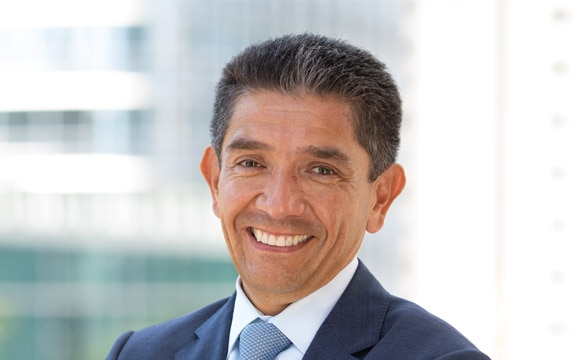Omar Aguilar, Ph.D.
Behavioral Finance Insights from our CIO of Passive Equity and Multi-Asset Strategies

Behavioral finance
Be ready for common behavioral biases that can undercut investment success—and leave clients short of their goals.
Omar Aguilar, Ph.D.

Behavioral finance
Avoiding decisions to sidestep regret can hold clients back. Educating clients on a broader strategy can help them achieve long-term success.

Behavioral finance
When clients follow the crowd, they may be heading in the wrong direction. Helping them think independently can lead to smarter investment decisions.

Behavioral finance
Help clients see the value of avoiding the urge to splurge in the moment—and why it could lead to financial rewards later on.

Behavioral finance
Focusing on recent events can skew the data needed to make a good decision. For clients, this can lead to ill-informed investment decisions. Help them take a broader view of the financial markets.

Behavioral finance
Most of us tend to overestimate our abilities. When it comes to money matters, such overconfidence can cause challenges. Here’s how to help clients take a more measured approach.

Behavioral finance
Taking a loss is painful. In fact, research suggests that we feel the pain of loss much more than the joy of equivalent gains. But efforts to avoid losses can sometimes introduce new risks that may be damaging for investors.

Behavioral finance
It’s great to find other voices that support what you believe. But confirmation bias can be damaging—especially for investors. Here’s how to bring other perspectives to your clients’ financial decision making.

Behavioral finance
It’s easy to stick with what you know. But for clients, this investment approach can lead to less diversified—and potentially riskier—portfolios. Here’s how to spot and address home bias.
Direct indexing
30 years of innovation have made possible the next step in investing for your clients: Schwab Personalized Indexing™. Learn more about this evolutionary strategy from Schwab Asset Management CEO Omar Aguilar, PhD.
Omar Aguilar, Chief Investment Officer, Equities and Multi-Asset Strategies, discusses behavioral finance principles and how they affect investor decisions and influence market trends. He also explains the importance of educating advisors on behavioral finance and how the Biagnostics™ program can help advisors deliver a better client experience.